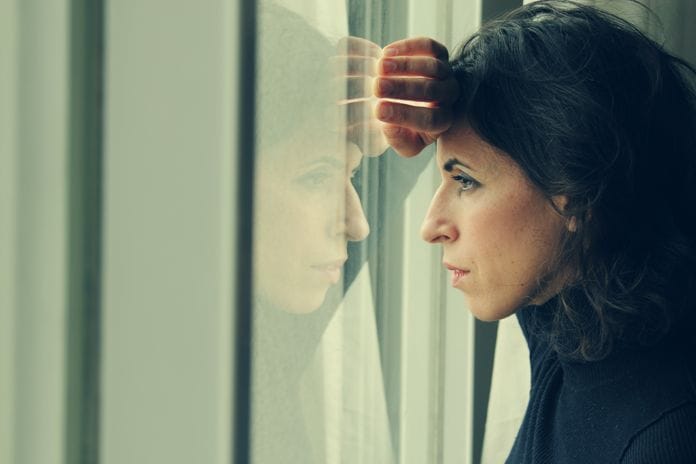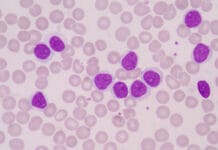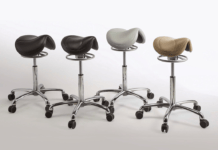I want to talk about a subject nearly untouched in the dental world, grief. I went into dentistry because I feared I would have been too emotional to handle nursing. I felt dentistry was a safer choice. I could still help and serve others but without the messy emotions associated with losing patients. Right?
I decided a long time ago grief was a state I’d rather not travel through. Dealing with grief is not one of my strengths. But life happens whether we are prepared or not and we must decide to sink or swim. I’ve had to decide to swim a lot lately. It’s a conscious decision I must make weekly, often daily, and sometimes minute-by-minute.
It stings when I hear of a long-time patient passing. We may not be directly involved in each other’s lives, but it is easy to become attached to a patient and family when you get to know them, and they entrust you with their personal stories. Just this past week, I learned a patient I had grown to know and love had passed. I adore this family so much and have served them for many years. My heart breaks for this young loss, yet the sting is deeper than just the loss of my patient.
I recently lost my dad to a heart attack. He died peacefully in his sleep at 65 years old. He had been to the doctor one month earlier for a wellness check, and his blood work all came back fine. He then went back with flu-like symptoms but tested negative for the flu. The doctor treated him with medications often prescribed for flu symptoms. A couple of weeks later, my mom found him “asleep” in his office chair.
It was the worst morning of my life. I answered the call from my brother, he was screaming. All I could decipher was that something had happened to Dad and they thought he was dead. I got to my parent’s house in time to see the paramedics pounding on his chest doing CPR. There was no life left in him. When the coroner arrived, he said he thought Dad had died several hours earlier. I have experienced many losses in my life, but this was the most traumatic and heart-wrenching.
I no longer knew how to function as a mom, a daughter, a wife, a caregiver, and a dental hygienist on a daily basis. My “normal” had been shattered.
Like many who are wired to be caregivers, I am not one to react emotionally in the moment. I handle the crisis, then a week or two later, when everyone else is taken care of, I break down. The first week after my dad passed, I took the week off work to handle all of the arrangements. I was in full-blown caregiver mode. I made sure my mom and siblings were okay, I took care of my husband and children, I made sure our extended family stayed informed, I canceled Dad’s upcoming appointments. There was so much to do, and dealing with my emotions was low on my list.
Returning to work a week after my dad passed was one of the hardest things I have ever done. I am sure I was still in a state of shock over what just happened, but I had to work. I had to prepare myself mentally for coming back to work. I would check the schedule each morning to see if I had anyone on my schedule that might know, or that has known me for years and may suspect something was wrong. I was always on guard.
Work was my safe space. At work, I was forced to step aside from the responsibilities of loss and surround myself with co-workers who wanted to care for me, and patients who could still see me as my old “normal” self. I was able to shift into my everyday caregiver self. Caring for my patients wasn’t as emotionally charged as trying to rebuild my life without my dad.
My co-workers were wonderful in helping me through this difficult transition. They had open ears when I needed to talk. They had open arms when I needed a hug. But they also gave me space when I needed to disconnect. When I had good days and could talk about my dad, I would. Memories helped to bring healing. When I had bad days, I would not talk about him or really prepare myself for the day. If I needed to hide in the bathroom for a minute to collect myself, I did, and my co-workers covered for me. I am very particular about professionalism at work, especially in front of patients, and knowing my office family had my back was key to my survival.
I am not perfect, and yes, I have cried at work, but mostly I have worked through and continued with my days as normal. My co-workers are there to help when they can tell I need a moment to gather myself. Working enabled me to be in sort of a different reality for a little while; as if it did not really happen (denial). Work was my constant, my “normal,” and my therapy of sorts. Returning to my career helped move me through the process of accepting his passing.
I had to learn to feel my emotions and tell myself, “It really is okay.” I learned the sooner I dealt with my emotions, the sooner I could begin to heal. This does not mean I don’t miss my dad; it just means I am beginning to build my new normal. I cry in the car; I cry in the bathroom. Sometimes I eat my feelings (not a healthy choice, but my current reality). I play angry girl music loudly in my car. I have couch time with a good friend. I allow myself to slow down and grieve.
I allowed the different stages of grief work. They happened whether I liked it or not. Sometimes I hit several emotions in one day. I learned to let it happen. It is perfectly normal. I learned to be good to myself while I healed.
Zoe Clark–Coates says it best with her Guide to Surviving Grief:
“Cry whenever you need to. Scream. Shout. Lay on the floor. Sob in the shower. Be still, Run. Walk. Create. Live your truth. Share without fear. Listen. Release your pain. Breath. Be courageous. Throw away the map. Wander. Be real, be compassionate. Read. Seek friendship. Be vulnerable. Don’t fear being broken.”
Everyone experiences loss at some point in his or her lifetime. When you work in a professional environment, it can be difficult to maintain your composure when triggers arise. Working through your emotions is essential to surviving any loss.
The sting of losing a patient this week helped me realize just how far I’ve come. Yes, my heart is broken for the family, I know their pain all too well, and it’s fresh. But, I’m still standing. I have allowed myself to work through the grief of losing my Dad with the help of my family, friends, and co-workers. I am stronger than I was before. I survived. I know my Dad is proud of my perseverance in finding my new normal.
SEE ALSO: The First Line of Defense Against Oral Cancer
DON’T MISS: Keeping a Grateful Heart in Dental Hygiene











